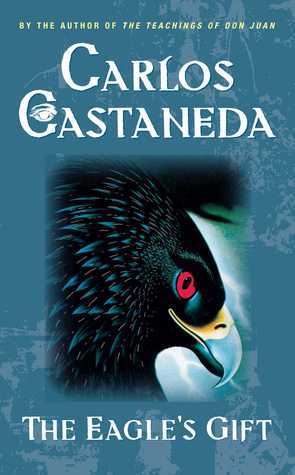
Journey to Ixtlan: The Lessons of Don Juan
Book Description
Step into a world where reality blurs with the surreal, as a seeker embarks on a transformative journey through the teachings of a mystic sorcerer. In "Journey to Ixtlan: The Lessons of Don Juan," Carlos Castaneda unveils a tapestry of shamanic wisdom, challenging the very fabric of perception. With every encounter, suspense builds, pushing the boundaries of consciousness and reality. Discover the secrets of the universe and the power of intention, as ancient traditions collide with modern understanding. Are you ready to unravel the mysteries of existence and embrace the unknown?
Quick Book Summary
"Journey to Ixtlan: The Lessons of Don Juan" chronicles Carlos Castaneda's apprenticeship under Don Juan Matus, a Yaqui sorcerer and teacher. Set against the mysterious desert landscapes of northern Mexico, the book blurs fact and fiction as Castaneda learns to challenge his rigid notions of reality. Through a blend of personal narrative and philosophical reflection, the story explores profound shamanic teachings that question the very nature of perception, intention, and self-awareness. As Castaneda journeys deeper into Don Juan's world, he discovers that true freedom lies in shedding reliance on ordinary interpretations of the world and embracing a fluid, mystical approach to existence. The book ultimately serves as an invitation to awaken from habitual ways of seeing, opening the door to transformation and the unseen dimensions of life.
Summary of Key Ideas
Table of Contents
Changing Perception and Assemblage Point
Carlos Castaneda ventures to northern Mexico to study indigenous use of psychotropic plants, but soon finds his mission altered under the guidance of Don Juan, a Yaqui Indian sorcerer. Rather than focusing simply on hallucinogens, Don Juan leads Castaneda toward a journey of personal transformation. Their interactions unfold as dialogues and practical tasks aimed at shattering Castaneda’s conventional worldview. Early lessons emphasize that real change occurs when one questions the fundamental nature of perception.
The Practice of Erasing Personal History
Through the process of 'erasing personal history,' Castaneda learns to let go of rigid self-definitions and expectations. Don Juan insists that clinging to a fixed identity and personal story keeps individuals trapped, making true freedom impossible. By relinquishing attachments to one's self-image, a person can become unpredictable, mysterious, and less vulnerable to the judgments of others. This practice is presented as central to becoming a "warrior"—one who navigates the world with fluidity and awareness.
Learning to Stop the World
"Stopping the world" becomes a key objective in Castaneda’s training. This concept refers to halting the internal dialogue and habitual patterns that shape one’s sense of reality. Don Juan teaches that the world appears consistent only because people silently reinforce their perceptions through unending self-talk. Interrupting this process, even momentarily, allows for glimpses of a much broader and stranger reality. Achieving this state is portrayed as both a practical and mystical breakthrough.
Becoming a Hunter and Warrior
Learning the strategies of the hunter and warrior, Castaneda is encouraged to cultivate impeccability and intent. Don Juan illustrates that a hunter knows when to wait, when to act, and how to blend in with his surroundings—much like a spiritual seeker must read the signs within and without. Impeccability is not about morality, but about acting with complete attention and minimal wasted energy. The warrior’s approach to living—alert, focused, and detached—serves as a metaphor for spiritual discipline.
The Power of Intent and Death as an Advisor
Don Juan repeatedly reminds Castaneda to consider death as an ever-present advisor. Rather than fearing it, recognizing death’s proximity brings urgency, humility, and clarity to each act. The awareness of mortality sharpens the senses and dissolves illusions, prompting Castaneda to act purposefully and authentically. By embracing the lessons of intent and mortality, the seeker approaches life as a wondrous, unpredictable journey—what Don Juan calls the road to Ixtlan, a metaphorical place of true peace and knowing.
Download This Summary
Get a free PDF of this summary instantly — no email required.





